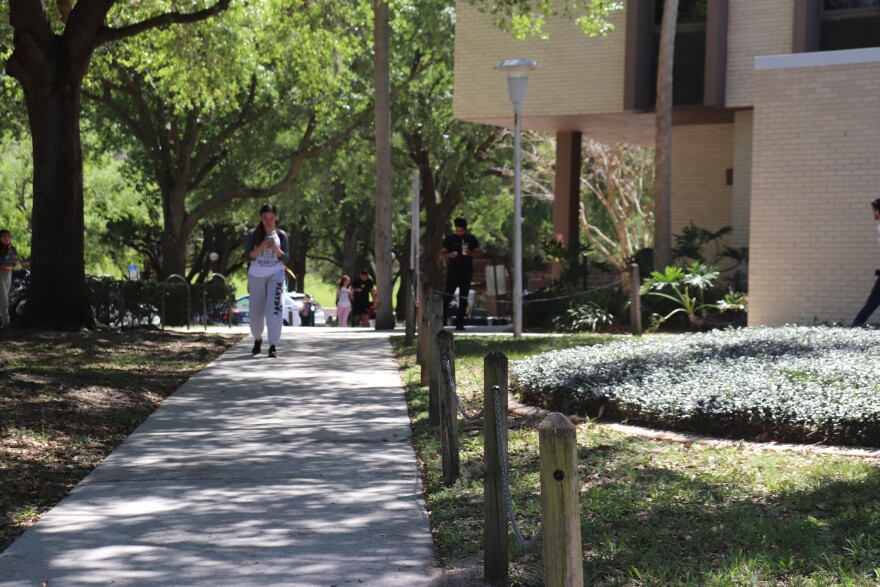Florida’s universities may be subject to stricter tenure reviews, thanks to a late amendment to a statewide bill.
The provision would let the Florida Board of Governors adopt a uniform standard for post-tenure reviews that would be done every five years.
It was added in the final days of this year’s session to a bill that would also require the state’s public universities to change accreditors every cycle.
William Lang is a professor specializing in the assessment of teacher performance at the University of South Florida St. Petersburg campus and vice president of the USF chapter of the United Faculty of Florida.
He spoke with WUSF radio news intern Violet Comber-Wilen about the tenure amendment, and how it may affect Florida’s faculty and universities.
William Lang: The basic idea of tenure has been around for many, many years. And it's simply a mechanism whereby scholars (in this case, college professors) are protected from creating scholarship that is controversial.
Violet Comber-Wilen: And why is tenure important?
Lang: Well, I don't know if it's important for everyone. But for college faculty, a large part of what most college faculty do is that we create new scholarship, new research, and new ideas. And then of course, you have what we call scholarship or endeavors that you wouldn't think of as research. You may write music, or write books or something. So it's creative, but it also is often research-based.
And many times, the avenues that you go down are things that would be controversial, in this case, maybe politicians or groups of people who represent a certain organization. There have been scholarly production ideas that have created problems for the public for many, many, many years. And, I don't think there's anything new about that. So if you dislike what people have to say, and then they will go after scholars, in some cases, just because the scholars produce new material.
Comber-Wilen: From your knowledge, where did this bill come from?
Lang: I do know that this is not unique to Florida, there are some other states like way up north in Georgia, where they have put some similar language together. My observation is that whenever similar language shows up in multiple states around the United States, there's usually some source for the language; it does seem similar to me in some other states, it looks like to me that there was an attempt to have an evaluation process for what they call a continuous or sustained evaluation that would allow a college or university, probably the Provost or someone at that level or perhaps the board of trustees, to evaluate faculty, and then decide that the faculty were not up to par or doing their job. And then they would lose their position, even if they were tenured.
That is certainly controversial for a number of reasons. One reason that it's controversial is that every major university in the state of Florida already has sustained performance reviews in their contracts. It's a solution looking for a problem.
Comber-Wilen: And what will this bill's impact be?
Lang: So if I understand it correctly, the fear is that a Provost will come along and decide that someone has said something or done something that's politically not up to what they're looking for — it's controversial. And because it's political, they'll make the decision that you are to be dismissed or non-renewed or something like that.
Comber-Wilen: Are you as an organization going to be responding to this?
Lang: The statewide organization and members of our chapter already have done that. We participated in statewide information, you know, Zoom calls and websites and things like this, and we've discussed some of these bills. But as a union, we will negotiate a contract and enforce it.
Lang added that most universities already do yearly evaluations on their tenured staff to ensure their performance is up to state standards.
He also explained that Florida universities all do their tenure reviews and evaluations differently, making it difficult to streamline these processes.
The bill will go to Gov. Ron DeSantis, who is expected to sign it.




